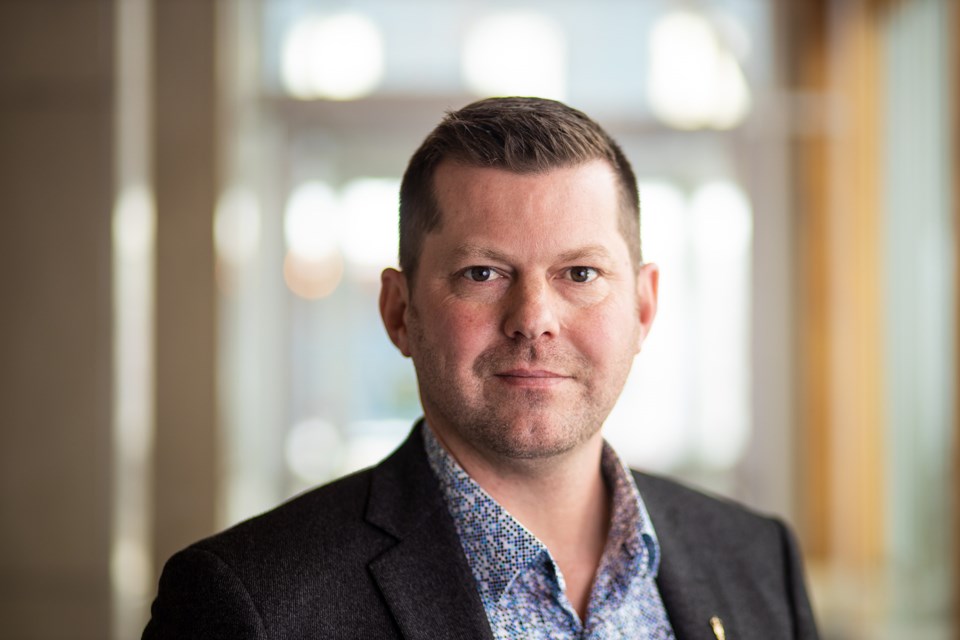Rural crime, red tape reduction and impending increased costs for policing services topped the list of concerns Foothills County councillors brought forward to the Highwood MLA.
Councillors met with MLA RJ Sigurdson on Feb. 5 to share their thoughts on provincial policies and their effects.
The bottom line: The County's finances are okay for now, but it's not going to last.
“Foothills County can hold the line this year, but we won’t be able to hold the line for the next couple of years,” said Coun. Delilah Miller. “Our residents are going to be hit with some pretty big increased costs.”
Those increased costs will come from the Province’s solution to rural crime: bringing 300 more RCMP officers into Alberta to help combat the issue. Under the Province’s new police funding model, the County will pay an additional $600,000 this year and $1 million per year moving forward.
The County runs its own enhanced policing program, which costs about $200,000 per year to have additional RCMP officers patrolling rural areas at the municipality’s cost for overtime hours.
“That’s not being recognized by the Province, so we’re either going to have to eliminate that or hit our taxpayers with more increased costs,” said Miller.
She said she doubts Foothills County will see sufficient “boots on the ground” to make up for the increased costs, especially since the RCMP has a shortage of new recruits.
Sigurdson disagreed, saying with 300 officers and 200 support staff guaranteed province-wide there will be a benefit to the Foothills. Since the municipality is contributing to costs, it will have a seat at the table to determine how the program is administered, he said.
“I want to refute the comment a little bit that you wouldn’t see more boots on the ground. This will mean more boots on the ground,” said Sigurdson. “This will give the assistance needed to the rural residents. And it is the way we need to move forward to decrease response time, because our current RCMP is overloaded.”
He said bringing more officers to Alberta – an increase in numbers not seen in the province in decades – can only help address the issues of rural crime, which remain one of the County’s top concerns.
As co-chair of the Province’s rural crime committee, he said he heard from many Albertans during the tour in the fall and most of those voices indicated they would gladly pay a little more if it meant increased police service and improved response times. The cost of adding 300 officers would be about $60 annually per taxpayer in Alberta, he said.
“The call from residents was clear – they feel alone, they feel scared,” said Sigurdson. “The only way we’re going to improve that is more boots on the ground.”
Coun. Rob Siewert raised concerns with another provincial initiative costing County residents money – the Calgary Metropolitan Region Board, of which Foothills has been a member since 2018 along with nine other municipalities in the area.
“We’re about two years into one of the biggest circles of red tape this province has ever seen, and that’s called the CMRB,” said Siewert. “It costs us a lot of money, I think $600,000 or $800,000 a year that we spend – just Foothills – and we’re 10 municipalities each spending that or more for not really any benefit.”
He said conversations with rural municipalities in the Edmonton area, which has had a similar growth board for longer, have revealed no long-term benefit to the mandatory partnership.
Sigurdson said he’s heard those comments and has had discussion with Minister of Municipal Affairs Kaycee Madu about the CMRB.
“He’s very apprised of the CMRB and the challenges and we’re definitely going to be having open discussions and I do believe the County has issued a letter to have a sit-down with the minister as well,” he said. “He’s open to hearing all of those issues.”
Coun. RD McHugh had more suggestions to reduce red tape in the province for municipalities, farmers and business owners. Specifically, he said occupational health and safety regulations should be addressed because they’re overly stringent.
He said having people re-certify for things like forklift driving or first aid every year is a waste of time and money.
“You have this certification and take courses every year or every three months or six months and it never seems to stop,” said McHugh. “Can we not just double the terms, so instead of having to take a course every year they get two years?
“Of course I completely understand we have to maintain a level of public standard, but the standards are right through the roof.”
Sigurdson agreed, saying as a former construction company owner he understands the frustration and burden of the regulations and recertification policies.
“I use the analogy of you go and test-drive a car once and you have your licence for the rest of your life, so why is it we’re sending employees back over and over, year after year?” he said.
It’s something he’s addressed with the associate minister of red tape reduction. He said so far the UCP has removed 6,800 regulations and the mandate is to remove 300,000 by the end of the term.
“I think it’s a little lofty, but we talk about one-third and we’re going to continue to work on it because there’s a lot of common sense that can be brought into it and there are a lot of barriers there,” said Sigurdson. “It just feeds into the cost overall of doing business, for every business.”




